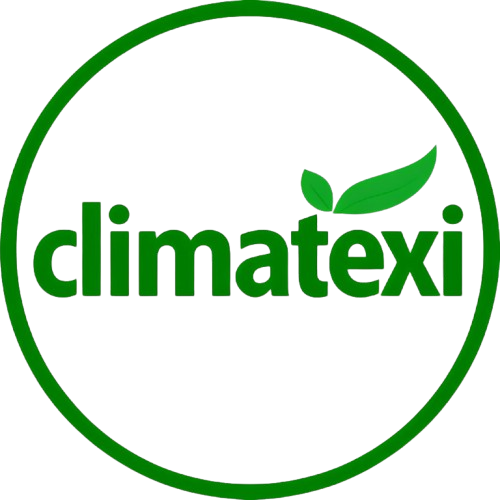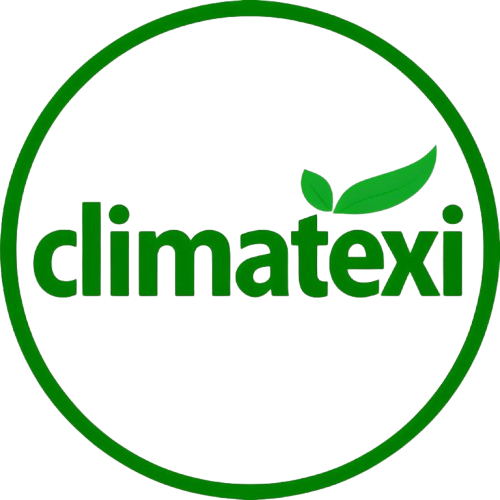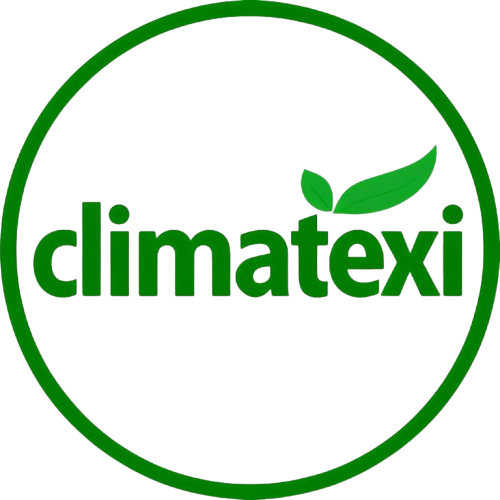I'll Show You How to Become a Great Environmental Writer in 2025

Trust me, I've seen every rookie error in the book, and you're probably making at least three of them right now.
Let me tell you about the time I nearly gave up on helping aspiring environmental writers altogether.
Picture this: I'm scrolling through my LinkedIn messages last Tuesday morning, coffee getting cold, when I see yet another message that starts with "Hey! I want to become an environmental writer but I don't know where to start." Sound familiar? Yeah, I get about twenty of these per week.
But this particular message made me do a literal double-take. This person, let's call them Alex, had attached what they called their "environmental writing portfolio." I'm thinking, okay, let's see what we're working with here.
How to become an environmental writer isn't rocket science, but apparently, common sense is optional these days.
The Environmental Writing Revolution Is Here (And Most People Are Missing It)
Here's what nobody tells you about environmental writing careers in 2025: the field has completely exploded, but 90% of wannabe writers are still approaching it like it's 2015.
I've been watching this transformation happen in real-time, and let me tell you, it's been wild. Major publications now have entire climate desks (The Guardian literally pledged to make climate their editorial priority), Fortune 500 companies are throwing $55,000 to $120,000 salaries at environmental communicators, and don't even get me started on the digital platform revolution that's creating entirely new income streams.
But here's the kicker, most people are still thinking they need to cold-email National Geographic and hope for the best.
Environmental writing has become this massive umbrella covering everything from investigative climate journalism to corporate sustainability reports to educational content creation. And the opportunities? They're everywhere if you know where to look.
Do I need a degree to become an environmental writer?
This is the question that haunts every aspiring environmental writer, and honestly, I'm tired of seeing people overthink this.
Do I need a science degree to become an environmental writer? This Reddit question pops up constantly, and the answer isn't what most people expect. Your ability to research, write compelling content, and build credibility matters way more than whatever's on your diploma. I've seen English majors with zero science background become absolute powerhouses in environmental communication, and I've seen environmental science PhDs who can't write their way out of a paper bag.
Here's what actually matters for how to become an environmental writer:
Continuous Learning: You need to be obsessed with staying current. Nature Climate Change, Environmental Research Letters, following the right experts on social media, attending webinars, consuming podcasts like they're going out of style.
Hands-On Experience: Volunteer with environmental organizations. Join citizen science projects. Get your hands dirty (sometimes literally). The stories you'll gather and the connections you'll make are worth more than any classroom lecture.
What Actually Qualifies as Environmental Writing (Hint: It's Way Broader Than You Think)
What are the different types of environmental writing jobs? This Reddit question shows up everywhere because people genuinely don't understand the scope.
When people hear "environmental writer," they immediately picture someone in hiking boots documenting polar bears on melting ice caps. Wrong.
Environmental writing in 2025 includes:
Investigative Environmental Journalism: The hardcore stuff, corporate accountability, policy deep-dives, scientific breakthrough coverage. These folks are pulling in $45,000 to $85,000 annually, and the experienced ones? Way more.
Science Communication: Translation work, basically. Taking mind-numbing research papers and turning them into content your mom would actually read. Science communicators specializing in environmental topics earn $50,000 to $95,000 annually, with freelance rates hitting $0.50 to $2.00 per word.
Corporate Environmental Communication: Creating sustainability reports and ESG documentation. Boring? Maybe. Well-paid? Absolutely. We're talking $60,000 to $110,000 annually with benefits that'll make your freelancer friends weep with envy.
Environmental Technical Writing: This is where Reddit user discussions get interesting. Technical writing for environmental companies, particularly Phase I ESA reports, offers entry-level opportunities with training provided. The work involves translating complex environmental assessments into clear, accessible language for various stakeholders.
How much do environmental writers actually make?
Are environmental careers high paying? This Reddit question comes up constantly, and the answers might surprise you.
Real environmental professionals are sharing actual numbers:
-
Environmental consultant with 15 years experience: $165,000 (started at $70,000)
-
32-year-old in federal remediation contracts: $200,000
-
10-year site investigation specialist: $145,000 total compensation
-
Entry-level environmental technical writer: $45,000-65,000 starting range
But here's the reality check, consulting and private contracting typically pay more than nonprofit work. One Reddit user noted that outside of consulting, six-figure salaries are uncommon, with some professionals earning around $50,000 after four to five years.
The environmental writing salary ranges vary dramatically by specialization:
-
Climate policy analysis: $75,000-150,000 annually
-
Renewable energy technology writing: $65,000-120,000 annually
-
Environmental justice reporting: $55,000-100,000 annually
-
Technical environmental writing: $40,000-90,000 annually
The Skills That Actually Matter (And the Ones Everyone Obsesses Over for No Reason)
What skills do you need to be an environmental writer? This question dominates Reddit discussions, and most people get it completely wrong.
Here's what separates professional environmental content creators from wannabes:
Data Interpretation: You need to read scientific studies, understand statistical significance, spot research bias, and translate complex information into "human speak." This isn't optional.
Technical Writing Skills: As one Reddit user with a PhD in spatial ecology noted, "technical writing is more than half the job" in environmental consulting. Professional development classes in technical writing are essential.
Interview Skills: Scientists, policymakers, activists, they all communicate differently. You need to know how to prep for technical interviews, ask follow-up questions that actually matter, and build rapport with sources who might initially see you as just another journalist looking for a soundbite.
SEO and Digital Strategy: This is where most people completely fail. You can write the most brilliant piece about climate policy, but if nobody can find it because you didn't optimize for search engines, you might as well have written it in your diary.
How do you pitch environmental articles to publications?
How long should a pitch for an environmental feature be? This specific Reddit question reveals a common struggle among new environmental writers.
The consensus from experienced journalists: keep it concise. A pitch should ideally be no more than two paragraphs, even for complex environmental stories with global implications.
Here's the proven structure Reddit users recommend:
-
Brief Problem Statement: Present the local environmental issue concisely
-
Source Bullet Points: List your intended sources and their roles
-
Solutions Mention: Indicate that your story includes actionable solutions
-
Clear Nut Graph: Present your story's central thesis
Which environmental publications should I pitch to? Reddit users consistently recommend:
-
Inside Climate News
-
Grist
-
High Country News
-
EcoWatch
-
The Revelator
-
Yale Environment 360
But here's the insider tip, many of these publications regularly accept freelance work and offer fellowships that can launch your career.
How do you network in environmental careers?
How do you effectively network with environmental firms and NGOs? This Reddit question gets asked constantly by job seekers.
Digital Community Engagement: LinkedIn has become the primary networking tool, despite its limitations. One Reddit user noted that "this industry is all about who you know" and recommended messaging people directly for coffee or Zoom calls.
Professional Association Participation: Reddit users consistently recommend joining local chapters of professional organizations like NAEP (National Association of Environmental Professionals).
Volunteer Opportunities: Multiple Reddit users suggest getting involved as a "citizen scientist" for local nonprofits and organizations like Thriving Earth Exchange.
Conference Networking: While COVID impacted in-person networking, virtual events and local professional society gatherings remain crucial for building relationships.
The networking secret most Reddit users eventually discover: environmental professionals are generally eager to help other "nature nerds" and the network expands almost organically once you make initial connections.
Building Credibility (AKA How to Stop Looking Like a Complete Amateur)
How do you build credibility as a new environmental writer? This unspoken question underlies many Reddit discussions about breaking into the field.
Here's how you actually build credibility as an environmental writer:
Start Small, Think Strategic: Begin with your personal blog or Medium, but treat it like a professional platform. Consistent publishing schedule, original research, expert quotes. Then progress to local publications, industry journals, national outlets.
Develop Real Sources: This means building actual relationships with researchers, policy experts, and industry professionals. Not just finding their email addresses and cold-pitching them once.
Get Recognized: Submit work to environmental journalism competitions. Join the Society of Environmental Journalists. Participate in industry conversations on social media.
But here's the part that most people skip, expert source relationship building. You need ongoing relationships with university press offices, researchers you've interviewed before, policy staffers, NGO communications teams. These relationships become your story pipeline.
What are the best resources for learning about environmental topics?
What are good sites or apps to learn about environmental science topics? This Reddit question reveals the continuous learning mindset required for environmental writing success.
Reddit users consistently recommend:
-
Mongabay: 20-year-old environmental news source available in 9 languages with podcasts featuring icons like Jane Goodall and David Suzuki
-
Science News Daily: Customizable newsletter featuring recently published environmental science research
-
Anthropocene Magazine: Focus on human impact and environmental solutions
-
BBC Science and Nature Podcasts: Multiple ecology-focused shows
But here's what experienced writers know, the best environmental stories come from direct field experience and professional engagement with environmental work, not just reading about it.
The Pitching Game (Where Dreams Go to Die)
Can someone explain how to pitch an article? This desperate Reddit plea appears regularly in freelance writing forums.
Mastering the pitch environmental articles process is literally the difference between having a career and having an expensive hobby. And most people are absolutely terrible at it.
Research Like Your Rent Depends on It: Before you pitch anything, you need to understand the publication's editorial calendar, recent coverage, submission guidelines, and audience demographics. This isn't optional research, this is basic professionalism.
Hook Development: Your pitch needs to grab attention immediately. "Climate change is bad" is not a hook. "New EPA data reveals [specific shocking statistic] that contradicts everything we thought we knew about [specific policy]", now we're talking.
Professional Presentation: Reddit users emphasize focusing on two key elements:
-
Establish that your topic affects many people ("## million Americans are affected by this issue")
-
Show how reading the article benefits those people (save money, improve health, understand policy impacts)
Should I pursue environmental technical writing?
Is environmental technical writing worth pursuing? This specific Reddit question from a recent communications graduate highlights an often-overlooked career path.
Environmental technical writing, particularly for consulting firms, offers several advantages:
-
Entry-level accessibility: Training provided, science background not always required
-
Steady demand: Environmental assessments, compliance reports, and regulatory documentation need constant creation
-
Skill transferability: Technical writing skills apply across multiple environmental sectors
-
Growth potential: Can lead to project management and consulting opportunities
The Reddit consensus: environmental technical writing provides a solid foundation for broader environmental writing careers, especially for those transitioning from other fields.
The Publishing Landscape (Traditional vs. Revolutionary)
What environmental publications should I know about? While this specific question doesn't appear frequently on Reddit, the underlying need for publication awareness drives many career discussions.
Traditional Publications are still paying well, National Geographic features pay $1-3 per word, Outside Magazine pays $0.75-2.00 per word, Grist pays $0.40-0.80 per word. But getting into these publications requires established credibility and often insider connections.
But here's where it gets really interesting, creator platform monetization.
The most significant development in environmental writing careers involves platforms offering multiple simultaneous income streams. I'm talking about places like Climatexi, where environmental writers can earn through content tips, engagement rewards, product sales, course creation, and fundraising all on the same platform.
This isn't your traditional "write an article, get paid once" model. Writers on Climatexi are earning from:
-
Direct reader tips on valuable content
-
Engagement-based rewards (likes, comments, shares)
-
Subscription revenue from premium content
-
Eco-friendly product sales to engaged audiences
-
Educational course monetization
Networking (AKA The Thing Everyone Claims to Hate But Actually Determines Everything)
Help with networking in environmental careers is a constant Reddit request, and for good reason.
Let me tell you about Sarah. Sarah started as a complete unknown environmental writing wannabe two years ago. Today, she's got a regular column at a major environmental publication and a consulting practice that keeps her booked solid.
What changed? She figured out networking.
Professional Association Participation: Reddit users emphasize participating in professional events organized by local conservation organizations, nonprofits, and park authorities. The Nature Conservancy volunteer days, local sustainability groups, and Wild Ones Society chapters provide excellent networking opportunities.
Volunteer Engagement: Multiple Reddit users discovered that volunteering with environmental organizations creates natural networking opportunities while building practical experience. One user noted that volunteering led to meeting "over a dozen conservation professionals" who now remember them professionally.
The networking secret nobody talks about? Most consistent work comes through relationships, not applications. The writers earning $75,000-150,000 annually in specialized areas like climate policy analysis got there through connections that led to opportunities.
How do I transition to environmental/climate journalism?
I want to pivot my career toward environmental/climate writing is becoming an increasingly common Reddit post.
The transition strategy that works:
-
Start writing environmental content immediately: Don't wait for permission or perfect credentials
-
Develop specialized knowledge: Pick one environmental area and become genuinely expert
-
Build a portfolio: Create environmental content regularly, even if unpaid initially
-
Network systematically: Connect with environmental journalists, scientists, and organizations
-
Consider graduate programs: Some Reddit users pursue specialized environmental communication degrees to facilitate career transitions
Specialization (Pick a Lane and Own It)
What environmental careers have the best growth potential? This Reddit question reveals the importance of strategic specialization.
The environmental writers making serious money have deep expertise in specific areas. Reddit users with environmental science backgrounds emphasize that "having technology-based skills (computer programming, GIS, remote sensing, flying drones) will get you higher paying jobs".
Climate Policy Analysis: $75,000-150,000 annually, freelance rates of $1.50-3.00 per word. But you need to understand federal environmental law, international climate agreements, and economic impact assessment.
Renewable Energy Technology: $65,000-120,000 annually with consulting opportunities. Requires technical knowledge of solar, wind, hydroelectric systems plus market analysis capability.
Environmental Justice Reporting: $55,000-100,000 annually with foundation support opportunities. Demands community engagement skills, cultural sensitivity, and data analysis capability.
One Reddit user with 33 years in environmental careers noted that if they were starting over, they would pursue a graduate degree in Risk Communication, highlighting the growing need for professionals who can "answer questions or respond to concerns from citizens and politicians".
The Platform Revolution (Where Smart Writers Are Making Bank)
What are the new opportunities for environmental writers? While Reddit discussions often focus on traditional career paths, the smartest writers are recognizing platform-based opportunities.
Climatexi represents this evolution perfectly. It's not just another content platform, it's a complete ecosystem where environmental writers can:
Build ongoing relationships with climate-conscious audiences, monetize content through multiple channels simultaneously, sell eco-friendly products to engaged communities, create and sell educational materials, fundraise for environmental projects, and earn through affiliate marketing.
The genius part? Writers using platforms like Climatexi aren't dependent on editorial decisions or publication schedules. They're building direct relationships with audiences who value their expertise.
Is the environmental field growing?
Do you see demand in environmental careers growing? This forward-looking Reddit question reflects concerns about long-term career viability.
The consensus from experienced environmental professionals: absolutely yes. Reddit users note increasing demand across multiple sectors, from corporate sustainability to government regulation to nonprofit advocacy.
One environmental professional with decades of experience emphasized that "having a background in environmental regulations/laws/policy" combined with technical skills and writing abilities creates significant career advantages.
The environmental writing field specifically benefits from this growth as organizations need communicators who can translate complex environmental issues for diverse audiences.
Advanced Career Development (For When You're Ready to Level Up)
What should I know about environmental job searches? Reddit users consistently emphasize that early licensing and certification accelerate career growth.
Once you've got the basics down, environmental writing careers offer incredible growth opportunities:
Multimedia Storytelling: Video production skills, podcast development, data visualization. Environmental writers working across multiple media formats command premium rates and have more diverse earning opportunities.
Business Development: Content agencies serving environmental organizations, subscription newsletter creation, event production, educational program development.
Global Opportunities: International environmental reporting, development organization writing, NGO communications positions.
Reddit users note that combining environmental expertise with business skills creates the highest earning potential.
Your Environmental Writing Action Plan (Stop Dreaming, Start Doing)
How do I actually get started in environmental writing? This underlying question drives most Reddit discussions about environmental writing careers.
Success in environmental writing careers requires immediate action combined with strategic thinking.
Next 30 Days:
-
Create or update your environmental writing portfolio (make it better than three Medium posts about saving the planet)
-
Register on platforms like Climatexi for diverse income opportunities
-
Join relevant professional associations mentioned by Reddit users
-
Identify and start addressing your biggest skill gaps
Next 3-6 Months:
-
Choose your specialization based on market demand and personal interest
-
Begin systematic outreach to publications recommended by Reddit environmental writers
-
Complete relevant training programs in technical writing or environmental communication
-
Establish consistent content creation schedule
Long-Term (1+ Years):
-
Build thought leadership in your chosen specialization
-
Develop multiple revenue streams through traditional and platform-based opportunities
-
Take leadership roles in professional communities
-
Start mentoring others (seriously, giving back accelerates your own growth)
The Bottom Line (Because You're Still Here and That Means Something)
Is environmental writing a viable career? The Reddit discussions and real-world evidence point to a resounding yes, with important caveats.
The environmental writing field in 2025 offers extraordinary opportunities for writers who combine passion with professionalism, skills with strategy, and expertise with entrepreneurship.
But here's the thing, most people will read this, nod along, maybe bookmark it, and then continue doing exactly what they were doing before.
Don't be most people.
Environmental challenges need skilled communicators more than ever. The market rewards environmental writers who understand both the science and the business side. And platforms like Climatexi are creating new opportunities for writers ready to build communities while building careers.
Reddit users consistently emphasize that environmental writing success comes from combining authentic expertise with strategic networking and continuous skill development. Your passion for environmental issues can absolutely become a thriving career, but only if you stop treating it like a hobby and start approaching it like the professional opportunity it is.
The planet needs your voice. The market rewards expertise and professionalism. And the opportunities have never been better.
So what are you waiting for?
Transform your environmental passion into a career by implementing these strategies immediately. Stop making the mistakes discussed in countless Reddit threads. Start building the relationships, skills, and platform presence that separate professionals from wannabes.
The environmental writers shaping conversations and earning serious income in 2025 are the ones who acted when everyone else was still "thinking about it."





